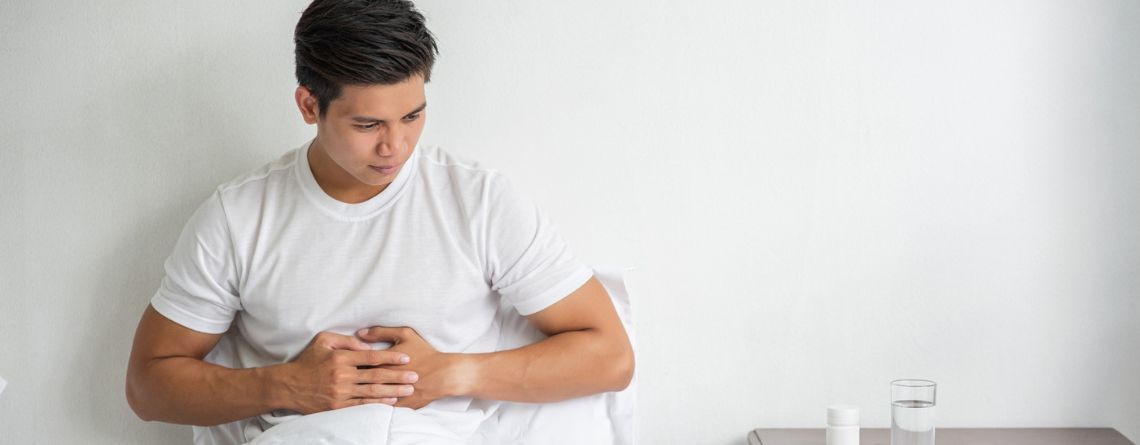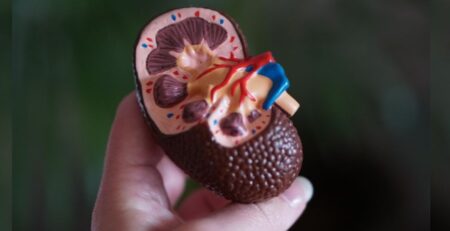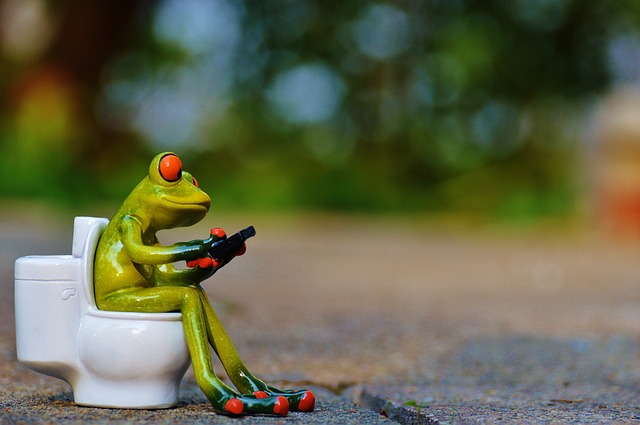Can Ulcerative Colitis Be Reversed?
Ulcerative Colitis (UC) is a condition that was unheard of a couple of decades ago. But today, it plagues millions of people, from teenagers and young adults to even senior citizens. Many live with the condition for years. If there is one learning we have had from years of working on UC cases, it is that it doesn’t have to stay that way.
UC is not a disease that can be cured but a flare-up that you can put into remission if you make the right lifestyle changes from eating the right way, moving more, changing your outlook, sleeping the right way, and managing your stress.
But it all begins with perception. When I consult ulcerative colitis patients around the globe, many have hardwired their minds to believe nothing can be done. They think they will have to rely on painkillers and steroids for flare-ups for the rest of their life. But it doesn’t have to be that way. As you read this, hundreds of people have successfully put their UC in remission.
The first part of any healing or recovery journey is perception. If you don’t believe you can get better, it will not work. I don’t have a magic diet, vaccination, or pill for you. But delving deeper into understanding your condition and using the right lifestyle to manage it is your first step to recovery.

What is Ulcerative Colitis?
It is a kind of inflammatory bowel disease (IBD), categorized as an autoimmune condition that causes inflammation and ulcers in the internal lining of the large intestine, colon, and rectum. These ulcers can sometimes bleed, form other ulcers, polyps, mucus, or pus and lead to an infection that requires the intervention of antibiotics, anti-inflammatory medication, and steroids to control it.
Symptoms to look out for
- Abdominal pain
- Rectal pain
- Blood in your stools
- Diarrhea
- Acidity
- Bloating
- Heaviness
- Poor appetite (many give up eating due to gut issues and irritation)
- Joint pain/swelling
- Extreme constipation
- Fever
- Malnutrition/Malabsorption leading to micro deficiencies (low levels of magnesium, selenium, iron, D3, and B12 despite eating well because your gut is weak)
- Constant mouth sores
- Fatigue
- Anemia
- Skin problems
- Liver issues
- Inflammation
You may experience one or two or many of these symptoms. Don’t panic. Try to correlate it with your lifestyle and approach your healthcare expert and get yourself checked. Your doctor may advise a stool test, CT scan, or some blood tests that can help diagnose this.
Commonalities
Genetic predisposition
Ulcerative colitis can also be genetic. We’ve seen this in our experience, where family members, especially parents, have it. But of course, there are other factors like bacterial and viral infections.
Self-medicating/discontinuing antibiotic courses
We also tell our patients: Do not self-medicate. If you have food poisoning, stomachache, or bug and your doctor has prescribed you an antibiotic course, complete it.
You may be prescribed a three-day or a five-day course, but sometimes you may start feeling better on day 1 and stop taking the antibiotics. DO NOT do this. Because you have not killed the bacteria completely. It tends to live in your gut longer and creates more inflammation. In 50 to 100 UC cases we saw this year, one commonality was most of them stopped their antibiotic courses during several bouts of food poisoning.
Lack of awareness of gluten/lactose intolerance
Another commonality that we observed among students who travel from India to study abroad is a complete change in diet. As they move to western diets especially having refined white flour, sugars, junk, and processed foods – it strips their good bacteria from your gut, affects digestion, and leads to more inflammation. Many of them are unaware that they are lactose or gluten intolerant.
What are some of the symptoms of gluten or lactose intolerant? You can have bloating, constipation, loose motions, and acidity. And the issue lies when more people do not want to correct the problem. They pop antacids like candy or drink anti-bloat concoctions. It only provides temporary relief from the symptoms. The root cause continues to exist. When left unaddressed and untreated, it can lead to ulcerative colitis.
Switching the solution mode ON

Manage chronic stress
We have many patients in remission, but the moment they get chronically stressed, they experience UC flare-ups again. Yes, stress can make your signs and symptoms worse and may trigger flare-ups. Follow mild exercise routines that can relieve stress and normalize bowel function. Try relaxation and breathing techniques (pranayama), meditation, or go for a 30-45 minute brisk walk to reduce stress levels. Try this 2-minute stress-to-destress exercise.
Fix sleep deprivation
Yes, pulling late-nighters on in a while when a situation demands it is okay, but when you are chronically sleep deprived, you are setting yourself up for increased inflammation. Fix your sleep patterns. Avoid making eight common mistakes while doing this. Know more about them here. Adopt easy-to-follow pre-bedtime rituals if it helps.
Address constipation
If you have acidity, bloating, constipation, or loose motions, it is imperative to correct these issues first. I have spoken about chronic constipation for years. Seven years ago, I made a video on commonalities in cancer. Chronic constipation was one of them. Many doctors reached out to me asking – Luke, what’s your connection between constipation and cancer? There is existing science around this. Recently one of the leading institutes in India – S-VYASA (which has Ph.D. doctors who use and teach yoga as medicine) has shown us the correlation between constipation and cancer.
It is common sense. Think about it for a minute. You are meant to poop out all the waste in our system. Why? Because this poop is toxic and not meant to sit in your system for a long time. It is why it smells and is full of bacteria and toxins. The longer you hold onto it, the more problems it will create.
It is like you have a blocked exit in your body. If I put you in a stadium with nine fire exits. Now, this stadium is packed, but I shut down one exit. If there is a fire, having even one blocked exit will lead to deaths. The same principle works with the human body. If you have issues with any of your eliminatory organs, you are accumulating toxins. Some people take medications and others undergo surgeries in extreme cases. Many others rely heavily on laxatives for long periods. Doing this can cause bowel overdependence in the long run. You can use lifestyle to ease constipation. Check out my blog on five ways to do this here.
Cut out triggers and follow a gluten-free casein-free [GFCF] diet
Cut out foods that can trigger your symptoms. In many cases, this could be gluten or dairy. GFCF refers to a strict elimination diet of foods containing gluten (found in wheat, barley. and rye) and casein (found in milk and dairy products). Know more here.
You may be prescribed an allergy test to identify foods you need to avoid. It may surprise you because sometimes, foods you have grown up eating may suddenly become allergens. Why? You have a weak gut. Eliminate these until you have rebuilt your gut health. Then under the supervision of your doctor and your integrative nutritionist, reintroduce them slowly.
That being said, remember you are unique. Different foods trigger inflammation in different people.
Fiber – to eat or not to eat is the question
If you are an ulcerative colitis patient with a lot of pain during flare-ups, fiber could be your biggest enemy. Common triggers include highly fibrous foods like nuts, seeds, leafy green vegetables, and popcorn. Eating these difficult-to-digest foods with an already-inflamed colon will only aggravate symptoms.
Be careful. Don’t just pump yourself with insoluble and soluble fiber. Use fiber in small amounts from fruits or certain vegetables. Cook or soak lentils or legumes. Use asafoetida (hing) to make these easy for your gut to break down. Try steaming, baking, or stewing certain fibrous foods like cruciferous vegetables.
Once you are in remission, fiber will become your best friend again.
Say no to grease
Reduce the amount of greasy, oily, or fried foods in your diet. Avoid excess fruit sugar (fructose) found in fruit juices. Some may even experience garlic and onions triggering their flare-up. Maintain a food diary to identify these triggers and cut them out
Prebiotics and probiotics
Whether it is from supplements or food, add them to rebuild your gut microbiome and improve its diversity. We recommend you do this naturally with foods first. Some of you may need supplements but ensure it is good quality. The probiotics from rice kanji can help in aiding the recovery of your intestine and improving digestion. Check out the recipe for the great Indian probiotic and a simple prebiotic drink here.
Say no to smoking and drinking
Alcohol, smoking, and caffeine may make your signs and symptoms worse. So, avoid them. There are a lot of people who have UC but continue indulging in these vices. You will not get better if you do this and will need to rely on constant medication, antacids and steroids because you are not taking the burden off your gut.
The right way to add protein
Protein is crucial for building muscles and overall recovery, but it can cause heaviness if you overdo it. Be watchful. You can include these proteins in your routine: overnight soaked pulses, lean organic chicken (only if it works well for you), whole free-range eggs, and a few carefully chosen nuts or seeds. The more thoroughly and mindfully you chew it, the less likely it will worsen your symptoms because it will reduce the burden on your digestive system.
Stay hydrated
Drink plenty of water to ensure adequate hydration (10-12 glasses of water per day). Take vitamin and mineral supplements (as needed) to maintain optimal health in ulcerative colitis.
Small meals every 3-4 hours
Eating smaller meals more often every three to four hours can minimize abdominal discomfort than overeating. It will also help keep acidity low. Focus on chewing your food well.
Move adequately
Exercise is excellent for you. The more blood that reaches your colon, the better it is for managing UC. Avoid extremes. Having a sedentary lifestyle and undertraining is just as problematic as overtraining. Strike a balance.
Supplements or extracts?
There are great supplements on the market, but I recommend you to look at the extracts used in them. Where do these come from? For instance, bromelain is found in pineapple and is excellent for repairing the gut (especially ulcerative colitis). So are Boswellia, turmeric, and curcumin. Add these to your lifestyle.
The Bottom Line
You don’t have to live and struggle with UC for life. If you want to heal and put it into remission, use lifestyle changes over and above what your doctor prescribes. There is possibility and hope.
Remember bio-individuality. What works for someone else doesn’t have to work for you. Find the right and personalized guidance that works for you. Know that ulcerative colitis when left untreated or not managed the right way, can lead to colorectal cancers. Look at better management and prevention. Love and take care of your overall gut health and lifestyle.
Need personalized guidance to address the root cause of your inflammatory bowel disease and manage it better?
Our You Care Gut Health Program helps you find the way.
Set up a one-on-one consultation with our integrative team of experts.
Get in touch with us on WhatsApp, call us at 1800 102 0253 write to us at info@lukecoutinho.com.
ALSO WATCH: Can Ulcerative Colitis Be Reversed?
(Certain excerpts of this article appeared in Indulge by the Indian Express)
|
From a pimple to cancer, our You Care Wellness Program helps you find a way Talk to our integrative team of experts today 18001020253 |









Leave a Reply